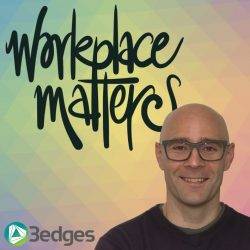December 14, 2017
One in three UK workers unhappy at work and a quarter plan career change
 The majority (72 percent) of employees in the UK go to work just to afford to live rather than for job satisfaction and one in four are considering a career change in 2018, claims a new survey. According to research conducted by Paymentsense, over half of those questioned say money is their biggest motivation, 67 percent say their degree went to waste and they work in an unrelated role, and 25 percent are considering a whole career change in 2018. According to the 2,000 UK participants in the survey, a career peak occurs at 42 years old, which is when you start to lose passion for your work. At this age, opportunities to progress seem to be rare which is why when asking those in their 40’s ‘why do you go to work every day’? 76 percent say to be able to afford to live. 51 percent say they need to just pay the mortgage and 57 percent have responsibilities to support the family.
The majority (72 percent) of employees in the UK go to work just to afford to live rather than for job satisfaction and one in four are considering a career change in 2018, claims a new survey. According to research conducted by Paymentsense, over half of those questioned say money is their biggest motivation, 67 percent say their degree went to waste and they work in an unrelated role, and 25 percent are considering a whole career change in 2018. According to the 2,000 UK participants in the survey, a career peak occurs at 42 years old, which is when you start to lose passion for your work. At this age, opportunities to progress seem to be rare which is why when asking those in their 40’s ‘why do you go to work every day’? 76 percent say to be able to afford to live. 51 percent say they need to just pay the mortgage and 57 percent have responsibilities to support the family.








 It appears to have been a challenging year for HR professionals, as a new survey suggests nearly three quarters (72 percent) of participants in a recent survey feel slightly or significantly more over-stretched in their role compared to last year. Forty four percent believe the workforce does not have enough support to thrive, and a further 23 percent don’t feel confident that their organisations are doing enough to address this issue. Research from a survey of HR people conducted by Cascade HR found that 32 percent of HR managers have found employment legislation harder to navigate. However, a reassuring 61 percent of HR professionals now feel ‘somewhat prepared’ for GDPR, which has understandably taken up a lot of preparatory time and resource as 2017 has unfolded. In fact, only 15 percent of HR professionals surveyed feel significantly or slightly underprepared, which seems to contradict national statistics on a business-wide level.
It appears to have been a challenging year for HR professionals, as a new survey suggests nearly three quarters (72 percent) of participants in a recent survey feel slightly or significantly more over-stretched in their role compared to last year. Forty four percent believe the workforce does not have enough support to thrive, and a further 23 percent don’t feel confident that their organisations are doing enough to address this issue. Research from a survey of HR people conducted by Cascade HR found that 32 percent of HR managers have found employment legislation harder to navigate. However, a reassuring 61 percent of HR professionals now feel ‘somewhat prepared’ for GDPR, which has understandably taken up a lot of preparatory time and resource as 2017 has unfolded. In fact, only 15 percent of HR professionals surveyed feel significantly or slightly underprepared, which seems to contradict national statistics on a business-wide level.

























December 13, 2017
The ups and downs of wearables for workplace health and wellbeing
by Lee Sadd • AI, Comment, Technology
More →